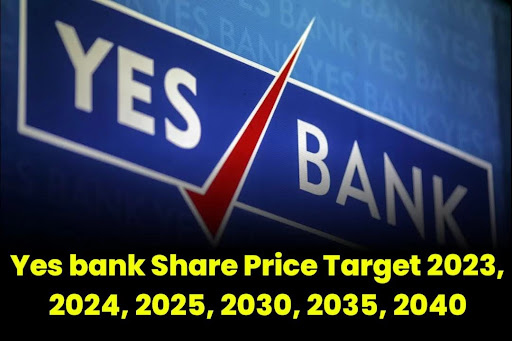
Yes Bank Share Price Target 2030
Yes Bank, a Mumbai-based full-service commercial bank, has been strategically navigating the new-age payments landscape with a history of prudent decision-making and a focus on digital innovation. In this comprehensive guide, we delve into Yes Bank’s business structure, recent challenges, and its future trajectory, accompanied by share price targets for the years 2023 to 2050.
Company Overview:
Yes Bank, headquartered in Mumbai, offers a spectrum of banking services, including corporate and retail banking, investment banking, and wealth management. Renowned for its tech-driven approach, the bank, an early adopter of mobile and digital banking, boasts a widespread presence with over 1,000 branches and ATMs across India.
Business Segment:
Positioned as one of the fastest-growing private sector banks in India, Yes Bank provides diverse financial services such as retail and corporate banking, wealth management, insurance, and credit cards. With a focus on NPA recovery and digital initiatives, the bank aims to expand its reach and bolster its corporate lending business.
Share Price Targets:
Year by year, we present Yes Bank’s share price targets, reflecting the bank’s dynamic efforts to enhance its financial standing and adapt to evolving market trends.
2023:
- 1st Target: Rs.26
- 2nd Target: Rs.29
2024:
- 1st Target: Rs.39
- 2nd Target: Rs.42
2025:
- 1st Target: Rs.49
- 2nd Target: Rs.58
2026:
- 1st Target: Rs.85
- 2nd Target: Rs.110
2030:
- 1st Target: Rs.348
- 2nd Target: Rs.410
2040:
- 1st Target: Rs.742
- 2nd Target: Rs.815
2050:
- 1st Target: Rs.1200
- 2nd Target: Rs.1800
Shareholding Structure:
Yes Bank’s shareholding is divided among promoters, with the State Bank of India holding the majority (48.21%), followed by Foreign Institutional Investors (27%), and the remaining shares held by the public.
Future Outlook:
Despite past challenges, Yes Bank is making strides in financial and operational performance, aiming to manage risks, improve asset quality, and invest in digital technology. The bank’s future growth hinges on its ability to recover loans and compete in the ever-evolving digital banking landscape.
Frequently Asked Questions
Future Share Price Considerations: Yes Bank’s share price targets are reflective of its commitment to adapting and thriving in the ever-changing financial landscape. As investors consider the projected targets for 2030, 2040, and 2050, it’s essential to acknowledge the multifaceted factors that influence stock prices, including market conditions, government policies, and the overall economic climate.
Share Price Target for 2030: The year 2030 holds promising prospects for Yes Bank as it aims for a share price target of Rs.348 (1st target) and Rs.410 (2nd target). With an increased focus on recovering loans and an optimistic outlook for the bank’s financial situation, these targets project robust returns for investors.
Share Price Target for 2040: Looking ahead to 2040, Yes Bank’s share price targets are set at Rs.742 (1st target) and Rs.815 (2nd target). Despite challenges faced due to economic slowdowns, the bank, buoyed by government support, envisions a strengthened position in the financial landscape.
Share Price Target for 2050: In the long term, Yes Bank anticipates a prosperous future with share price targets of Rs.1200 (1st target) and Rs.1800 (2nd target) for the year 2050. The bank’s commitment to growth and profitability, coupled with improved asset quality, positions it as a key player in India’s banking sector.
Share Price Target Table Recap:
Disclaimer Reminder: As a reminder, this article is not authorized financial advice. While share price predictions are provided for reference, readers are urged to conduct their own research and consider the dynamic nature of the market before making investment decisions. The volatility of the market and unforeseen events may impact the actual performance of Yes Bank’s shares.
Shareholding Structure and Future Outlook: Yes Bank’s shareholding structure, with the State Bank of India as the largest shareholder, positions it for stability and growth. The bank’s focus on risk management, asset quality, and digital innovation aligns with the evolving demands of the banking industry.
Conclusion:
This guide provides a holistic view of Yes Bank’s journey, from its historical challenges to future growth prospects. Share price targets serve as a compass for potential investors, But before making any investment decisions, it is imperative to carry out in-depth study and speak with financial professionals. Stay tuned for more insights into the dynamic landscape of the Indian stock market, brought to you by our dedicated team providing daily updates and analysis.
Disclaimer: Readers are advised that the information provided is for educational purposes only, not financial advice. Share price predictions are subject to market conditions, and investments should be made based on thorough analysis and consideration of the current financial landscape. The article is not responsible for any financial losses incurred due to reliance on the information provided.







